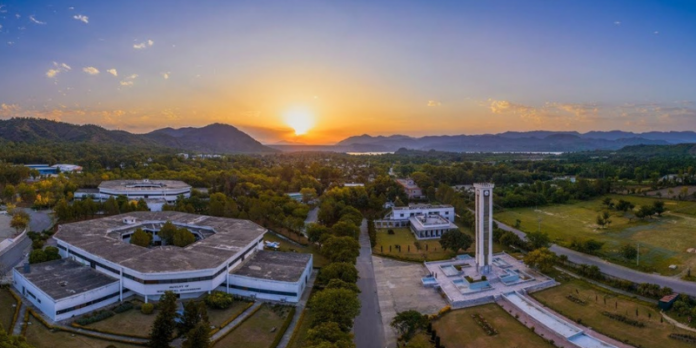- Advertisement -
PESHAWAR, Feb 22 (APP):Experts at a conference here at Ghulam Ishaq Khan (GIK) Institute on Saturday emphasized the use of modern engineering in tackling environmental and climate-related issues.
They focused on innovative technologies, including smart materials, eco-friendly construction methods, and advanced computer modeling. Research on green city planning, resilient building structures, and sustainable construction practices was shared.
The two-day conference on climate change and emerging environmental trends was held at IK Institute of Engineering Sciences and Technology (GIK) in Topi here.
The conference brought together researchers, students, and industry experts to discuss practical solutions to environmental challenges and emphasized the urgent need for collective efforts to address climate issues affecting both Pakistan and global human life.
The event was financially supported by the Higher Education Commission (HEC), the Worldwide Fund for Nature (WWF), GIK Institute, and Lakeshore City.
Professor Dr Atiqur Rehman Tariq, speaking on the issue of water scarcity, emphasized that water management will soon become one of the most critical aspects of civil engineering.
He urged researchers and engineers to focus on better water management practices to mitigate the risks of drought and shortages, stressing that water is essential for human survival.
Dr Muhammad Tufail, currently serving as the Country Manager for CDM Smith, a US-based consultancy firm, called on engineers to develop sustainable and eco-friendly infrastructure that minimizes environmental damage and optimizes resource utilization.
GIK Institute Rector, Professor Dr S.M. Hassan Zaidi, underscored the importance of using advanced technology to address sustainability challenges.
He stated that climate change is a severe issue requiring innovative ideas and immediate action.
Professor Dr Muhammad Ashraf Tanoli highlighted the need to update civil engineering education, urging universities to incorporate new trends in engineering to better prepare future engineers for climate challenges and smart infrastructure development.
The conference also encouraged collaboration between academia and industry, showcasing GIK Institute’s commitment to training engineers who would lead the future of sustainable civil engineering.
It concluded that there was no time for complacency, and immediate government action was necessary to address these pressing environmental issues.

